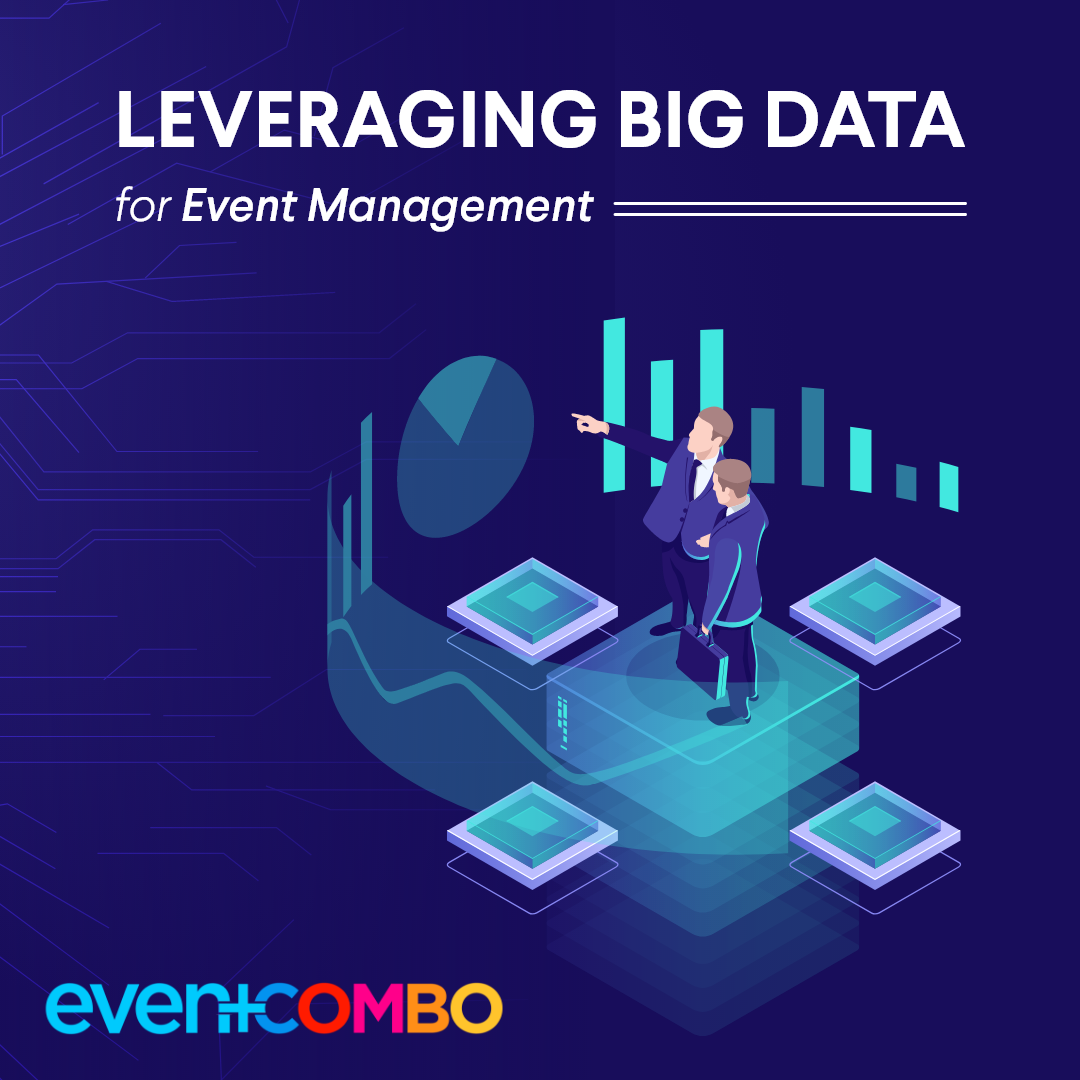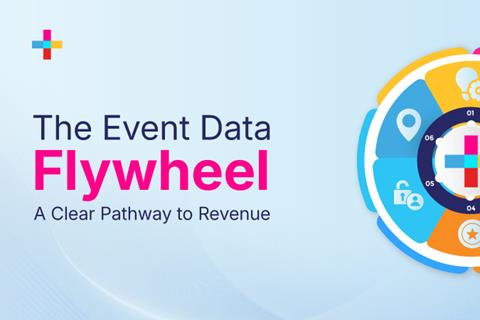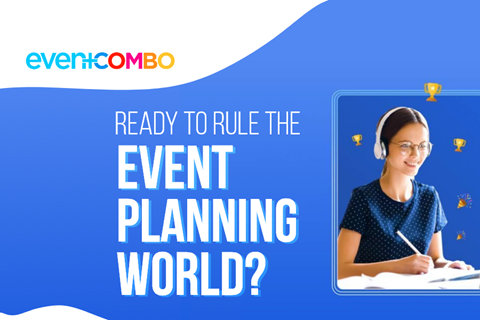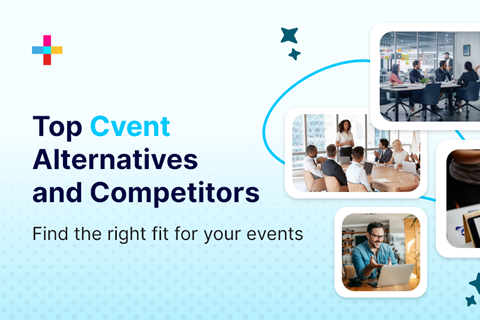

Big data in the events industry is revolutionizing the way events are organized and executed. This type of data occurs as unstructured data from diverse sources like social media, mobile devices, and robust event management platforms. Its analysis uncovers crucial insights about the spending habits of attendees while on the event floor, the attitude towards vendors, attendee engagement with guest speakers, reasons for specific event attendance, suitable communication styles, and activities that will spark the most engagement. That is why over 97% of organizations are investing in big data and AI. Indeed, as the number of people using digital devices increases, so does the amount of big data, which makes it easier to uncover solid opportunities for successful events. Let's explore its implications further with examples.
1. Providing Personalized Experiences
Data collected from event attendees before and during an event gives deeper insights on how to enhance the event experience. Several technologies like geolocation and beacons enable the delivery of unique experiences.
Geolocation provides location intelligence, allowing event organizers to track attendee movement at an event.
Beacons are tiny, wireless transmitters that utilize Bluetooth technology and operate in low energy. It works by sending signals/information to nearby smart devices, typically interacting with an application (Google Chrome or event app). This information is then translated into messages, notifications, check-ins, and so on. Once the connection is established, the beacon can track the phone’s location and movement and can be used by organizers to communicate session reminders, special offers, and so forth.
Let us take another example of how organizers can provide a personalized experience. Wristbands worn by attendees can gauge their reaction to stimulus. These wristbands have sensors that can measure body temperature, analyze body movements, and collect data from psychological analysis and even through body sweat. Such data can be used by an event DJ to know what kind of music the crowd prefers at large and helps them set the mood, control lighting, arrange smoke machines, and, basically, streamline the ambience.
In addition, analysis of big data and AI revolutionizes attendee experiences. Here are the major ways these technologies help event planners.
a. Increasing the relevance of sessions, workshops, and activities in the event.
b. Use engagement strategies that align well with the audience's interests.
c. Tracking of individual attendee journey to gain deeper understanding of their behavior.
d. Understanding potential networking connections of attendees.
2.Targeted Promotions
Event promotion requires a lot of monetary resources and support and therefore, it is important to make sure you maximize your outreach in a cost-effective manner. Data gathering and analysis help organizers to extract useful insights and better connect with event attendees.
For example, suppose a survey reveals that most information regarding an event is first learnt through social media. In such a scenario, instead of spending money on offline promotions one can focus more on running effective social media campaigns.
To attract more attendees, the imperative is to realize the importance of advertising to the right set of audiences. With the help of analytics, organizers can get first-hand knowledge of what their target group is actively using to get information, what is the best way to connect with them, and how the messaging strategy should be crafted in order to grab their full attention.
By analyzing data and choosing the right promotional strategies, you can plan and organize events seamlessly with our event management platform.
3. Crowdshaping
Crowdshaping is the effective utilization of user-generated data sourced from people present within a definitive space (event environment). It is usually passive and uses technology to determine attendee preferences and interests based on their actions.
Collect big data to measure various attendee behavior by multiple means ranging from foot traffic to biometric readings in real-time. For example, data collected from different mediums, such as how attendees are engaging in activities, whether they are clustering around a specific place, where they are moving, and the activities in which they are participating the most, is crucial for planning effective experiences. Furthermore, this data is fed into dedicated algorithms that translate these figures into useful insights. Such insights enable event planners to align their event strategies with attendee interests and likes. Having access to such information can greatly help you woo your event audience!
Crowdshaping also allows organizers to identify problems in their event strategies. For future events, such data can be used to make better event planning decisions (such as evaluating if there’s a need of opening multiple check-in lines or choosing venues according to attendee needs).
4. Modelling Event Attendance
Historical data from past events combined with real-time data from social media gives opportunities to gain insights into attendee behavior and preferences. These can be used to create predictive models that estimate future attendance. In turn, it leads to efficient data-driven decisions on budgeting and sponsorships.
Big data analytics when used together with event data analytics and reporting platforms provides the best insights. Along with big data, machine learning models are being developed that assign an attendance value to historic events. The predictive analytics technology then facilitates forecasting attendance for upcoming events.
5. Efficient Planning for Future Events
By analyzing big data, you can identify the specific topics and themes that most interest your audience. This analysis also provides insights into the kind of guest speakers that interest your attendees or any specific presentation technologies they prefer. Sources such as online searches, social media platforms, and post-event surveys help you understand the needs and pain points of potential attendees.
Furthermore, predictive analytics allows you to make highly accurate predictions about emerging topics with growth potential. Event planners can use this information to tailor marketing campaigns, incorporating new insights to effectively target their audiences. By examining demographic data, past engagement patterns, and online behaviors, planners can refine their strategies for maximum impact.
Conclusion
Event planning requires keeping track of all checkpoints and essentials, along with the activities, which can burn a hole in your pocket. Big data gives a 360-degree view of the entire event planning process which helps planners design safer event spaces that are easier to navigate, offering personalized experiences, and garnering happy attendees, in a cost-effective manner.

The metrics look strong. Registrations are up. Attendance holds. Satisfaction scores clear the benchmark. Then comes the CFO question that freezes the room. Which registrations turned into customers? Sales checks the...

Professional certifications for event planners do more than provide a solid foundation in the field; they offer valuable exposure to the dynamic world of event planning and insights from prominent industry experts.

Choosing the right event management platform is vital for event professionals navigating the growing demand for in person , virtual, and hybrid events. Modern planners need solutions that offer robust features,...